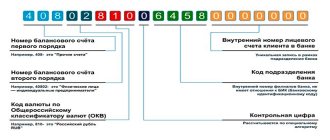Home • Blog • Blog for entrepreneurs • How an individual entrepreneur can deposit and withdraw money from a current account
November 19, 2021
333
How can an individual entrepreneur deposit and withdraw money from his current account safely, without fear of receiving claims from the bank or the Federal Tax Service? Situations often occur when entrepreneurs deposit their own funds into the current accounts of banking institutions to pay for goods to suppliers, while tax authorities may think that the funds are income. In this case, tax is deducted from personal funds in favor of the tax office. Or, for example, a businessman withdraws funds he earned from his accounts, and the banking institution blocks the card. To avoid such misunderstandings, entrepreneurs need to know some features when managing funds from current accounts. In this article we will try to figure out how to withdraw money from an individual entrepreneur’s current account, as well as how to replenish accounts without arousing suspicion from banks or tax authorities.
How to deposit money into an individual entrepreneur's current account?
To begin with, it is worth recalling that individual entrepreneurs are not legal entities, which means they have the right to use personal funds, as well as company funds, personally for those needs that they deem necessary. A businessman can either transfer money to a current account or withdraw funds or make a transfer. However, it is worth remembering that you need to deposit cash with caution.
When checking with the tax service, it may become clear that more funds were deposited into the account than the businessman indicated in the declaration. Tax officials may decide that the entrepreneur is partially hiding the proceeds, and will decide to charge additional taxes, as well as oblige you to pay fines and penalties.
To avoid such troubles, it is worth specifying the purpose of the payment as “Depositing your own funds”/“Replenishing your account with your own funds” for each transaction. In this case, the tax authorities will understand what funds are included in the income category and what is not. In addition, depositing money into an individual entrepreneur’s current account should only be done in person, under one’s own name. When replenishing a current account by third parties, be it relatives or friends, the tax office may also count the funds as revenue, which means assessing taxes.
Depositing funds for settlements with employees
An individual entrepreneur has the right to deposit his own funds into the cash register and for settlements with his employees. At the same time, it is very important to correctly reflect the value of the receipt of this money in the book of income and expenses (KUDiR). In this case, you must save all bank receipts.
As soon as the funds arrive in the appropriate account, the payment of salaries to employees will be carried out in accordance with the documents used, which confirm the legality of such financial transactions.
What happens if you hide your proceeds?
You should not disguise the profit received under the guise of personal funds. If you correctly formulate the purpose of the payment transaction, then the tax office will not have any questions, but only in the case when the businessman actually transfers personal money. In the case when entrepreneurs hide the proceeds under the guise of personal money, in order to save money, the tax office will somehow find out the truth.
By analyzing sources of income, the inspectorate will find out the amount of money you earn. If you do not prove that the funds are personal, the tax authorities will charge additional taxes, and along with them penalties.
Example from life
The businessman hid the proceeds by depositing a large amount of money into his current account, indicating them as personal funds.
Over several years, about 500 million rubles were contributed, while profits and expenses in tax returns appeared significantly less. Having analyzed the profits from tax reports compiled over many years, the tax inspectorate found out that the entrepreneur could not officially earn such an amount. The Federal Tax Service concluded that the businessman hid real proceeds and transferred funds from accounts under the guise of personal ones. Ultimately, the entrepreneur was ordered to pay more than 10 million rubles in unpaid taxes. Having filed a lawsuit, he tried to prove that the money was borrowed, but the judge sided with the tax authorities.
Questionable transactions
Frequent withdrawals of money from the account will raise questions from the bank. Your transactions may be interpreted as questionable, and your account will be blocked until the reasons are clarified. Read about the reasons for blocking accounts by banks in our article and in Federal Law No. 115-FZ “On combating the legalization (laundering) of proceeds from crime and the financing of terrorism.”
Don't abuse cash. Frequent and systematic withdrawals of large amounts will raise questions. The bank is especially interested in withdrawals that occur immediately after the funds are received.
Do not resort to the services of fly-by-night companies. This is illegal and may raise questions from the bank, tax and law enforcement authorities.
How to withdraw money from an individual entrepreneur's current account?
You should withdraw cash with caution. In theory, a businessman’s money is his property, which means he has the right to do whatever he wants with it. However, the existence of “anti-money laundering” law No. 115 (adopted on August 7, 2001) obliges banks to monitor suspicious transactions. You can learn in detail about transactions considered suspicious from the Methodological Recommendations compiled by the Central Bank.
From the recommendations we can draw the following conclusion: suspicious transactions are considered to be withdrawals of funds that are not related to wage payments or production expenses. The bank has the right to set a block on funds until clarification is clarified.
Of course, this does not mean that withdrawing money from a current account is completely unavailable for individual entrepreneurs. Blocking by the bank threatens only in the case when a businessman makes large one-time transfers, and at the same time he withdraws the entire amount or transfers it to third-party accounts.
Example from life
The entrepreneur registered as an individual entrepreneur and created a bank account.
After that, he completed his first deal with a large customer and received an advance from them in the amount of 300 thousand rubles for work done in the future. Delighted, the businessman immediately wanted to withdraw money from the individual entrepreneur’s current account. He tried to transfer them to the card, but the bank blocked the account for a suspicious transaction. The entrepreneur was not aware that the bank could perceive such an act as an operation to illegally withdraw funds. After the money arrived in the individual entrepreneur’s current account, he should not try to withdraw the entire amount at once. It would be more logical to pay for purchases using a card and withdraw cash in installments.
When paying for goods and services using a bank card, we provide the bank with information to track the movement of funds in accounts. Thus, the bank and the tax office will have no doubts about the integrity of citizens and entrepreneurs. And when paying and withdrawing cash, you can come under suspicion, because tracking becomes problematic.
In case of an emergency need for cash, before withdrawing money from the individual entrepreneur’s current account, notify your bank and explain why you need the money, and also confirm your words with the necessary documents. If your accounts or cards have already been blocked, call the bank and find out why this happened. Employees are required to tell you the reason for blocking. If, after justifying the reason for withdrawing or transferring money from the account and providing documents, the account is not unblocked, then contact the Internet reception of the Central Bank.
Features of using a bank account as a personal account
It is necessary to distinguish between tax and banking legislation. In the tax law there is practically no distinction between personal and business accounts of individual entrepreneurs. The legislation does not reflect various nuances. But there is banking legislation. It contains both distinctions and nuances.
So you should study Chapter 2 of Central Bank Instruction No. 153-I dated May 30, 2014. It contains these rules:
- Accounts are opened by individuals for activities not related to business (clause 2.2).
- Accounts are opened by individual entrepreneurs for actions necessary to carry out entrepreneurial work (clause 2.3).
But these are regulations. And there is practice. For the most part, entrepreneurial and personal finance are mixed. This is due to the vagueness of the definition of “personal money of an individual entrepreneur.” In fact, funds placed in any accounts are recognized as the property of the entrepreneur. Therefore, if you don’t have enough money for your account, you can top up your account with personal money. For example, an individual entrepreneur can finance salary payments to employees and loan repayments. An account used for commercial activities can be replenished with personal money in unlimited amounts.
Risks
Mixing business and personal money comes with numerous risks. The fact is that all receipts on the account can be recognized as taxable income. In this case, additional taxes are charged. Penalties and fines are also accrued along the way.
And there are reasons for this risk. Funds received in the account are not considered income. They do not meet the criteria specified in Article 41 of the Tax Code of the Russian Federation. That is, there is simply no reason to recognize money as taxable income. But you need to take into account that replenishing your account does not automatically mean that the deposited funds will be recognized as personal.
Let's consider all the risks of using a personal account for commercial purposes:
- A banking institution sometimes does not credit money if the payment order indicates “IP Petrov” instead of “Petrov”. The partner’s bank can also reject funds.
- If an individual entrepreneur indicates his personal account for settlements, buyers and counterparties may refuse the transaction. This is due to the presence of a number of risks accompanying the transaction. For example, the tax office may recognize a partner as a tax agent. In this case, liability for non-payment of personal income tax is imposed.
- The bank may refuse to transfer money to the individual entrepreneur's counterparty. An institution may refer to the fact that the Civil Code of the Russian Federation obliges it to carry out only operations provided for a specific type of account. And personal accounts are not intended for payments related to business. If personal accounts are regularly used for business transactions, the accounts may be temporarily blocked due to anti-money laundering laws. Personal accounts used for business activities may be considered suspicious. And this also does not lead to anything good. An entrepreneur may be asked to close an account based on material violations of an agreement with the bank.
- The tax office may question whether expenses from a personal account are related to business activities. She may also question the personal nature of the top-up. This entails the need to send an explanation to the tax office about why the proceeds were not included in taxable income.
- Individual entrepreneurs may need to receive money from government agencies. And, most likely, government agencies will refuse to make a transfer to a personal account.
An entrepreneur is practically unlimited in the use of personal funds. However, using a personal account is accompanied by numerous risks.
In which bank should I open a current account?
Before opening a bank account, you need to analyze the capabilities and advantages of all candidates. Our company interacts with a number of banks that provide cash settlement services (cash and settlement services). Below we will tell you about your options for opening an account.
Sberbank is one of the largest and most reliable banks in Russia, which has a large number of opportunities and advantages for entrepreneurs. Main features of the bank:
|
|
MTS Bank is a large universal commercial bank, the priority areas of which are retail and corporate lending, servicing accounts of legal entities, and market operations. The main advantages are:
|
|
Bank for entrepreneurs Tochka is a digital Russian bank aimed primarily at working with entrepreneurs. Main features:
|
|
Module Bank is the only bank in Russia whose activities are aimed only at small businesses. Key opportunities for entrepreneurs:
|
|
Analyze the data and choose the optimal bank for opening a current account for individual entrepreneurs and LLCs in order to deposit and withdraw money without problems. If you still find it difficult to choose, Multikas specialists will advise you on any questions you may have and help you choose the best option for your business.
Do you need to open a current account for an individual entrepreneur?
Don’t waste time, we will provide a free consultation and help you open a current account on the most favorable terms.
Withdrawal fee
A significant disadvantage of cashing out is the bank commission, which varies from bank to bank and depends on the reason for the withdrawal. The lowest commission for withdrawing cash for salary payment is less than 1%. The commission for withdrawing money for other needs will be higher from 1% to 2%. The most expensive way to withdraw money from a corporate card is at ATMs, where the commission can exceed 2%, but this depends on the bank and the conditions under which the account was opened.
Commissions can be avoided when transferring funds from a corporate card to a personal one. In this case, the bank will take a commission only for the payment, but it is small. To optimize money transfers, we recommend opening current and personal accounts in the same bank.
Results
An individual entrepreneur has the right to withdraw funds from his own business and invest them in it without restrictions. At the same time, it is not mandatory for individual entrepreneurs to open a current account intended for funds involved in business. But having such an account provides certain advantages.
An individual entrepreneur is not required to keep accounting records. However, when exercising such a right, he must take into account the funds contributed to the business as an increase in the capital generated during entrepreneurship. When using the double entry method, the posting will look like Dt 51 Kt 84.
Unlike enterprises, individual entrepreneurs have the right to manage their finances at will. For example, deposit a certain amount into a current account or cash register. Just like taking money from a cash register or withdrawing it from a current account. Therefore, in this material we will describe in detail how the personal finances of an individual entrepreneur are reflected in the 1C Accounting 8 program, version 3.0.
Recently, for those individual entrepreneurs who use an accounting program, it has become possible to display their own funds without much effort.
Since November last year, starting with program version “3.0.37.25”, it has been possible to take into account an individual entrepreneur’s own money. For this purpose, an operation called “Personal funds of an entrepreneur” appeared in bank and cash documents.
Funds specified in documents with this type of transaction will not take part in the preparation of individual entrepreneurs’ tax reporting.
If, for example, an entrepreneur puts his money in the cash register, then a document is created called “Cash Receipt (CRE)” with a transaction type called “Personal Funds of the Entrepreneur”.
Screen 1
The reporting document must indicate the amount invested, the person who contributes the funds, the basis and application. The posting “Dt 50.01 Kt 84.01” will be generated according to the document.
If the entrepreneur withdraws his money, then with the type of operation “Personal funds of the entrepreneur”, you need to create a document called “Issuance of cash (RKO)”.
To receive money, in the document, as with a deposit, you need to indicate the amount, the person who is investing the funds, the basis and application. According to the document, the following posting will be created: “Dt 84.01 Kt 50.01.”
In the case of depositing funds into the account of an individual entrepreneur with such type of transaction as “Personal funds of the entrepreneur”, a document is created called “Receipt to the current account”.
The document must indicate the purpose of the payment and the amount. According to this document, a posting should be generated: “Dt 51 Kt 84.01”.
If an individual entrepreneur receives funds from a specific current account, then with the type of operation called “Personal funds of the entrepreneur”, you need to create a document called “Write-off from the current account.”
In the above document you must indicate the amount and purpose of payment. According to the document, a posting will be created accordingly: “Dt 84.01 Kt 51”.
Transfer of own funds IP posting
This profit relates to the individual and does not affect the activities of the company. And since there is no income as such, then you do not have to pay any tax.
It is important not to get confused in numerous incoming transactions and calculations. Correctly reflecting the profit of an individual entrepreneur in the final declaration, as well as in the internal documentation of the enterprise, will save you from unnecessary waste of your own funds.
All income transactions must be clearly delineated: you must separate the income from your own investments and the company’s activities. These articles should not overlap. Otherwise, it may turn out that you pay tax on money that you yourself deposited into your current account.
Let's list the main advantages: Withdrawal of funds Purposes of the transaction For personal needs Which accounts can be used to reflect in accounting personal funds deposited and received by an individual entrepreneur from a current account, as well as funds associated with conducting business activities (an individual entrepreneur keeps accounting records)? Is it possible to use count 75 in this situation? The funds that an individual entrepreneur transfers to the settlement account opened for him to carry out business activities, from his personal accounts, cannot be recognized as income, since they are not related to payments for sold goods (work, services) or property rights (see also the letter from the Department of Tax Administration of Russia according to Moscow dated April 17, 2002 N 11-17/17692). Accordingly, the return of these funds to the entrepreneur will not be an expense.
To justify the incoming payment, you need to have a strict reporting form indicating:
- Deposit amounts;
- Current account numbers;
- Account number of the individual from which the transfer was made (that is, yours);
- Operation dates;
- Name of the banking institution;
- Transfer destinations.
On the receipt order there should be a phrase in the purpose of payment approximately as follows: “Replenishment of the current account with personal funds.” This formulation will allow you to avoid problems with the tax authorities in the future. When depositing personal money, you must be aware that you can only top up your individual entrepreneur’s account. Transferring your own funds to someone else's account is not allowed. The bank will refuse you this operation. If you transferred your own money to the company’s cash desk to issue earnings to employees, then this operation is also not reflected in the book of income and expenses.
Depositing an individual entrepreneur's own funds into an account: postings
Unlike funds received by a legal entity from its participant (founder) and requiring certain formalization of such relationships (loan, increase in authorized capital, gratuitous transfer), the contribution of individual entrepreneurs’ own funds into their own business does not require any additional registration. By investing money in it, an entrepreneur simply increases his capital generated by conducting commercial activities.
An individual entrepreneur may not reflect the fact of depositing money in accounting, since (subclause 1, clause 2, article 6 of the Law “On Accounting” dated December 6, 2011 No. 402-FZ):
- he has no obligation to keep accounts;
- in the registers required for it (they reflect the information necessary to generate data on the object of taxation), these funds are not taken into account, since they are not subject to taxation.
But the entrepreneur has the right to keep records. When implementing it, the individual entrepreneur will reflect the deposit of his own funds into the account by posting, which can be expressed as:
- a regular (not double) entry in the book of accounting for facts of economic activity, if a simple simplified form is chosen for accounting;
- an accounting entry using accounting accounts in it, if accounting is kept in full, full simplified or abbreviated simplified form, in which double entry on accounts is mandatory.
The correspondence of accounts in the accounting entry with double entry will look like Dt 51 Kt 84.
Paying taxes on personal money of individual entrepreneurs
In the process of activity, an entrepreneur working on the simplified tax system deposits his personal funds into a bank account to pay for the rent of the premises. A pressing issue for him is the payment of tax on the amount transferred to the account.
An individual entrepreneur who deposited his funds into the account is not a person forming the tax base, and his personal money cannot be recognized as income, since it is not related to the sale of goods or services.
A private individual running a business has the right to spend his own money on any needs, unlike the managers of an LLC, who do not have such a right.
If a request is received from the tax service with a claim regarding payment, it is necessary to send a letter to the Federal Tax Service indicating the purpose of the funds received and the amount of the fee to be paid.
In documents created according to cash register data for individual entrepreneurs, it is necessary to reflect the cash flow mechanism, following the order of the Central Bank of the Russian Federation according to a simplified scheme. Maintaining a cash book is not the responsibility of an entrepreneur, but many managers prefer to document the movement of funds and maintain financial discipline. Maintaining account 50 “Cash” is necessary to reflect debits and credits.
Filling out a cash book helps an individual entrepreneur take into account the movement of money over a 12-month period. An alternative option is the accounting program “1C:Enterprise”. In the absence of a special book, it is impossible to determine the amount of cash remaining in the cash register.
The new provision on the preparation of cash documents applies to entrepreneurs working under the taxation system, and recommends that they issue the receipt receipt counterfoil to the person who paid the money. When working with legal entities or individuals, individual entrepreneurs should always have cash documents.
Accounting for personal amounts in the account
Depositing money by an individual entrepreneur into his personal account is not considered revenue. After the operation, a cash receipt order is filled out, which indicates the purpose of the funds as not related to business income. When filling out a debit order, you must indicate the number of the current account to be replenished and the address of the banking institution.
Of great importance is the correct execution of documents indicating the source of receipt of money when depositing it with the bank. An individual entrepreneur has the right to deposit cash through a bank cash desk only into his own account.
If this rule is violated, the bank refuses to accept money. After the transaction has been completed, the entrepreneur receives from the cashier a receipt signed and stamped by the financial institution that accepted the payment in cash. After posting the money, an account statement is issued indicating the entire amount. If funds were deposited as your own, you should post them through the cash register using account 84.
If money is deposited into the account of an individual entrepreneur and it is received from the sale of goods, it is necessary to indicate their purpose in the PKO, registering it as revenue. All accounting entries must be documented. If an entrepreneur deposited his own money into an individual entrepreneur’s account in order to pay off a debt, it is displayed in 1C with the obligatory issuance of a cash receipt order. The total amount accepted is not subject to recording in the income and expenses ledger.
An individual entrepreneur does not always keep accounting records, but if the appropriate documents are available, they use entries Dt 50.1 Kt 76.78.66 (at their own choice). Sometimes it is convenient to use account 72 - income, expenses of an individual entrepreneur, 72.1 - investing personal funds, 72.2 - replenishing an account.
It is considered possible to use account 84, since the funds of an individual entrepreneur are understood as the entire totality of his expenses, both profits and losses.
Taking into account all the positive and negative aspects of drawing up cash documents in the process of work, the individual entrepreneur formalizes the receipt of funds with order No. Ko-1. If money is deposited into the cash register, an account is used for accounting that records work with creditors and debtors, as well as postings (Debit 76, Credit 50) indicating the receipt of money through the cash register. If the entrepreneur refuses to maintain accounting documentation, it is necessary to comply with clause 2 of Art. 6 of Law No. 402-FZ, concerning tax accounting of profits and expenses.
Accounting
The entrepreneur’s personal funds, which he decided to deposit in the cash register, can be considered as revenue. Therefore, you need to immediately issue a receipt order. And it should be noted that these finances are not related to the activities of the individual entrepreneur, and also reflect the purpose of the payment.
When filling out a debit order, it is also important to indicate the bank account number to which the transferred amount will be credited. It is also worth writing down the address of the bank where the transfer was made.
When depositing money at the cash desk, it is very important to complete the documentation correctly. Namely, it is correct to indicate where this money came from. An individual entrepreneur can deposit cash only into his personal bank account. Otherwise, the bank may refuse.
Upon completion of the operation, the individual entrepreneur will receive a check stamped and signed by the cashier. After completing the operation, you need to make transactions; in our case, you need to use account 84 (“Other operating expenses”).
It is necessary to indicate the purpose of money in a cash receipt order (PKO) only when money received from business activities is deposited into the cash register. In this case, they must be registered as proceeds. Each wiring, regardless of type and purpose, must be documented with the necessary documentation.
When an individual entrepreneur has a debt and deposits money into the account in order to pay it off, it is necessary to issue a PKO. The entire amount that was invested is not taken into account in the KUDiR.
Taking into account the nuances that relate to the correct execution of various types of documents, it is worth noting that the contribution of personal money to the cash desk should be supported by warrant No. Ko-1. Only in this case, financial accounting of funds deposited in the cash register will be kept in the account that reflects work with creditors and debtors (Debit 76, Credit 50), as well as in the posting account.




